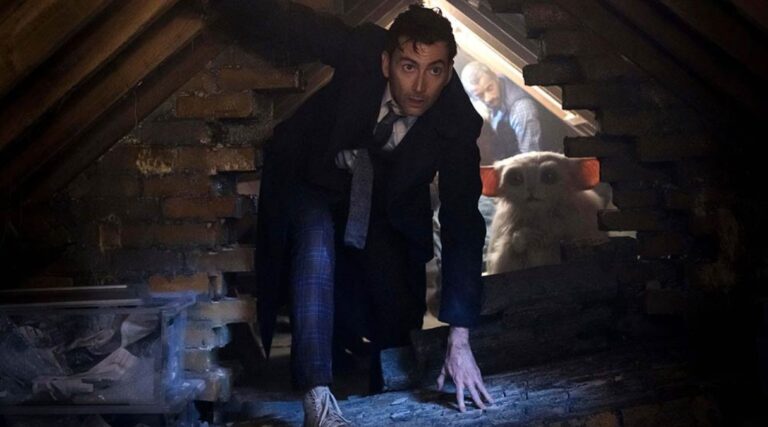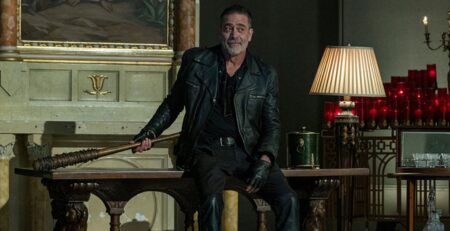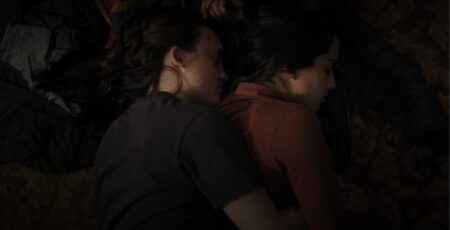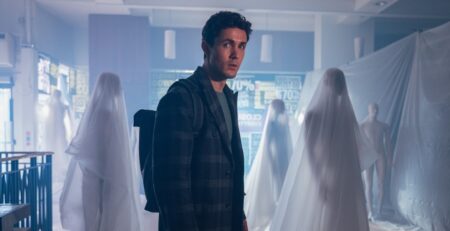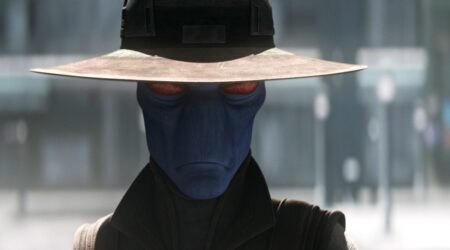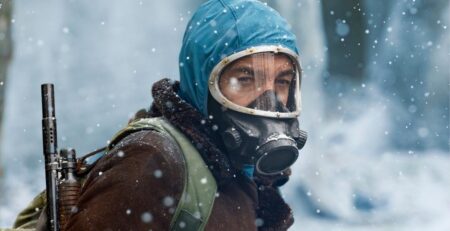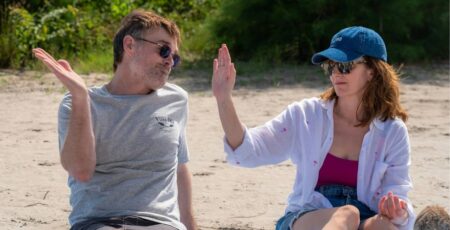“The Star Beast” is the first of a series of three special episodes of Doctor Who. Written by Russell T Davies from a story by Pat Mills and Dave Gibbons, this episode is directed by Rachel Talalay. The trio of episodes make up the 60th anniversary of the show. The episode stars David Tennant and Catherine Tate, but also features Yasmin Finney, Jacqueline King, and Karl Collins. The Doctor has regenerated into his old face. And the TARDIS takes him to London. There, he finds Donna Noble, who must never remember him, just as a spaceship crashlands in the city.
This is an episode that is all about history and celebrating, and yet there is still a progression into the future. Flung straight into a reunion between the Doctor and one of his most beloved companions, the Time Lord is soon introduced to Rose, Donna’s daughter. She is the future, a sign of time passing. The exposition in the early stages of the episode is clunky. There’s a strange prologue at the start, where both of the main characters talk directly at the camera, mentioning the fact that Donna remembering the Doctor will result in her death. This is vital to the plot, and it’s a point of agony and tension. But this point is explained at length at least twice later in the show and really hammered home. This stutters the start of the episode.
Davies’ speed in which the core of the episode is established does deserve merit, as the crashing spaceship draws everyone rapidly towards it. What comes out of that spaceship is three different plot threads that all intersect. At first, things seem adorable but simple, purely there to cause chaos among a family that wants to stay out of it. Rose finds a cute creature running from something dangerous. But the perceived simplicity is just a sucker punch, flipping the special on its head. The pace gets even faster, with multiple sides converging within an incredibly vulnerable and volatile point.
The last part of the episode is where “The Star Beast” absolutely shines. Everything is building to it, and it brings back all of the heartache that happened all those years ago when Donna left the show in the first place. But within it is beautiful humor and a really powerful sense of hope and family.
The performances are exciting and disorienting initially, twinned with Davies’s dialogue. In the first episode of a Doctor Who season, there is nearly always trepidation. There is usually something new, whether it be a Doctor, a companion or even a showrunner. Other times, it’s a continuation of the previous season, with the same group. But here is a reunion between characters that last worked alongside each other in 2008. Even End of Time, where Tennant and Tate last appeared on screen, was at the start of 2010. Therefore, it takes time to get used to seeing them back together, the same but older. Doctor Who never runs from age, it’s one of the defining themes of the show. They will never make someone look younger, instead letting the actor embrace that they inevitably look different. Perhaps the best example of that is Wilf.
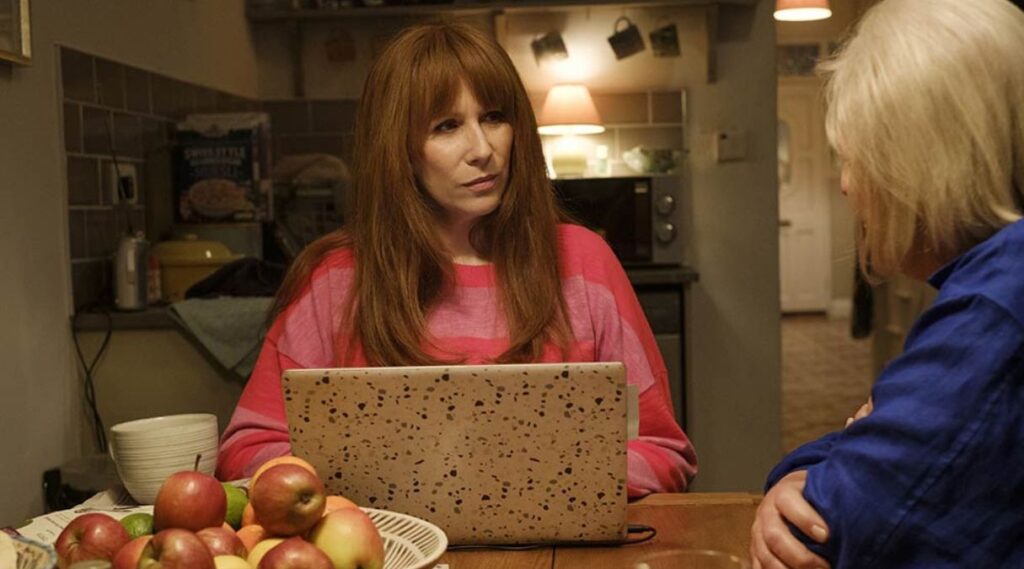
The passage of time is both a positive and a negative within “The Star Beast”. The first part of the episode has the feeling of both Tate and Tennant getting back into their roles, and the first scenes can feel like playing up to the memory of the characters rather than actually settling. The Doctor has been several people since that regeneration, and so the personality isn’t exactly the same.
Meanwhile, Donna has also had a life, but still has the furious attitude and fire that made her exhilarating and hilarious as a companion. The connection between them is purposefully awkward, but there is something about those two that just feels like home. It’s impossible not to adore them, with the energy and the battles and the inevitable car crash that is always on its way. Davies’ scripts have also returned, which can be filled with both pain and joy. There are large swathes of the story that have a last cast within, and the writer is able to balance all of them. They are all trying to do separate things, which conflict with one another, and it only increases the energy and the ridiculous noise that this particular group are known for.
King’s return as Silvia, Donna’s mother, is remarkable. She’s a delightful representative of British comedy, encompassing a varied and strong maternal figure. She’s critical but also fiercely protective, terrified of what could happen to her daughter if she remembers the Doctor. The sequences including her are some of the best parts of the special. Finney is sensational, joining the family and carrying lightness and a sense of adventure that is required among those who join the show.
The approach to her identity is incredibly well-written, using it to drive the story and be influential to one of the biggest storylines in Doctor Who history. Davies has now shown that diversity and representation will be used to empower characters in unique and groundbreaking methods. And whilst Wilf, the greatest of all of The Doctor’s companions, does not appear in person, he still has a presence. It’s a beautiful conversation between the Doctor and Wilf’s family, demonstrating the love the ancient alien has for the man.
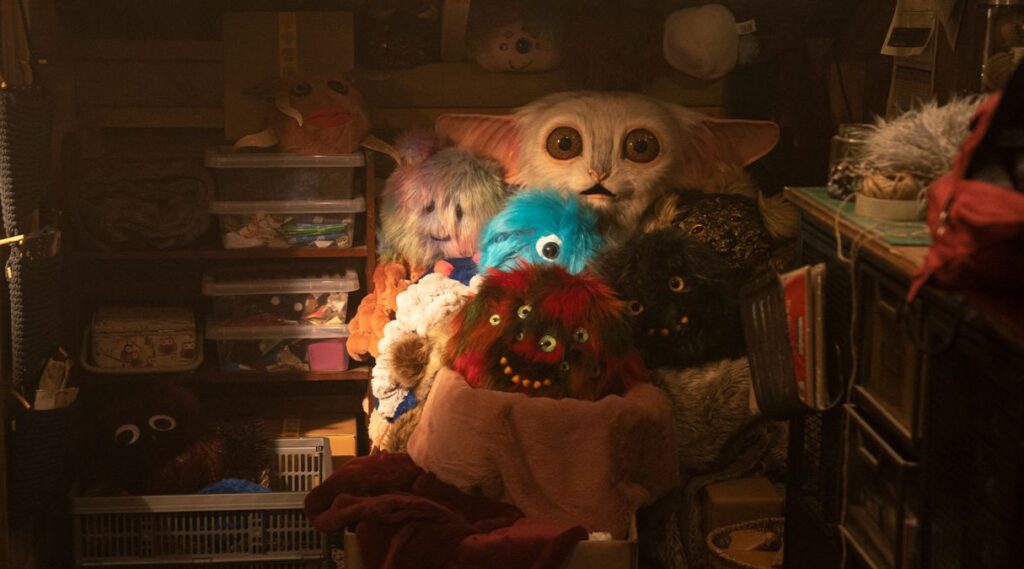
The production of “The Star Beast” illuminates another aspect of this new Doctor Who era: a bigger budget. The sci-fi show’s charm has been creating amazing stories with a modest purse compared to American shows, but the inclusion of Disney+ to the team has elevated what it can achieve. The CGI is impeccable and the visuals are stunning. It was funny to see a brief flashback to Journey’s End, as it displays the evolution in the eras of television.
It isn’t just the visual effects that are tremendous, as two of the alien designs are a triumph of the costume department. Even when there is access to a digital alternative, the primary creature that appears out of the crashed ship is an example of that. Having a fully realized, practical creation is part of the history of the show and should never be sidelined. A new TARDIS interior and a title sequence are all part of the furniture for the first episodes of a season, and both look sleek and modern. Davies has brought legendary Who composer Murray Gold back, and some iconic pieces within the score can be heard as the characters have their renaissance.
“The Star Beast” feels like home. The plot may be clunky, and it isn’t the most enticing of stories, but it is absolutely full of heart, love, and warmth. One of the most painful tragedies in the 60 years of Doctor Who is revisited, with the constant possibility of making it even worse. Davies frequently verges on the precipice of disaster. But The Doctor almost considers it worth it just to be around his best friend again. The chemistry between Tate and Tennant, the Doctor Donna, is flawless. It isn’t always easy to come back after so many years away, and the early stages create a bizarre feeling for those who have experienced the gap in time. But it doesn’t take long for two phenomenal actors to find their stride.
It could be argued that the special doesn’t move forward quickly enough or that Davies is leaning heavily on history and past accomplishments as he begins a new tenure as showrunner. But it should be remembered that this is an anniversary, existing to celebrate what has come before. And through Rose and the stunning visuals, there are signs of the new status quo. Doctor Who has always been a mix of memories and movement, and this episode embodies that.
“The Star Beast” is streaming now on BBC iPlayer and Disney+.
Doctor Who: The Star Beast
-
Rating - 8.5/108.5/10
TL;DR
Doctor Who has always been a mix of memories and movement, and this episode embodies that.

